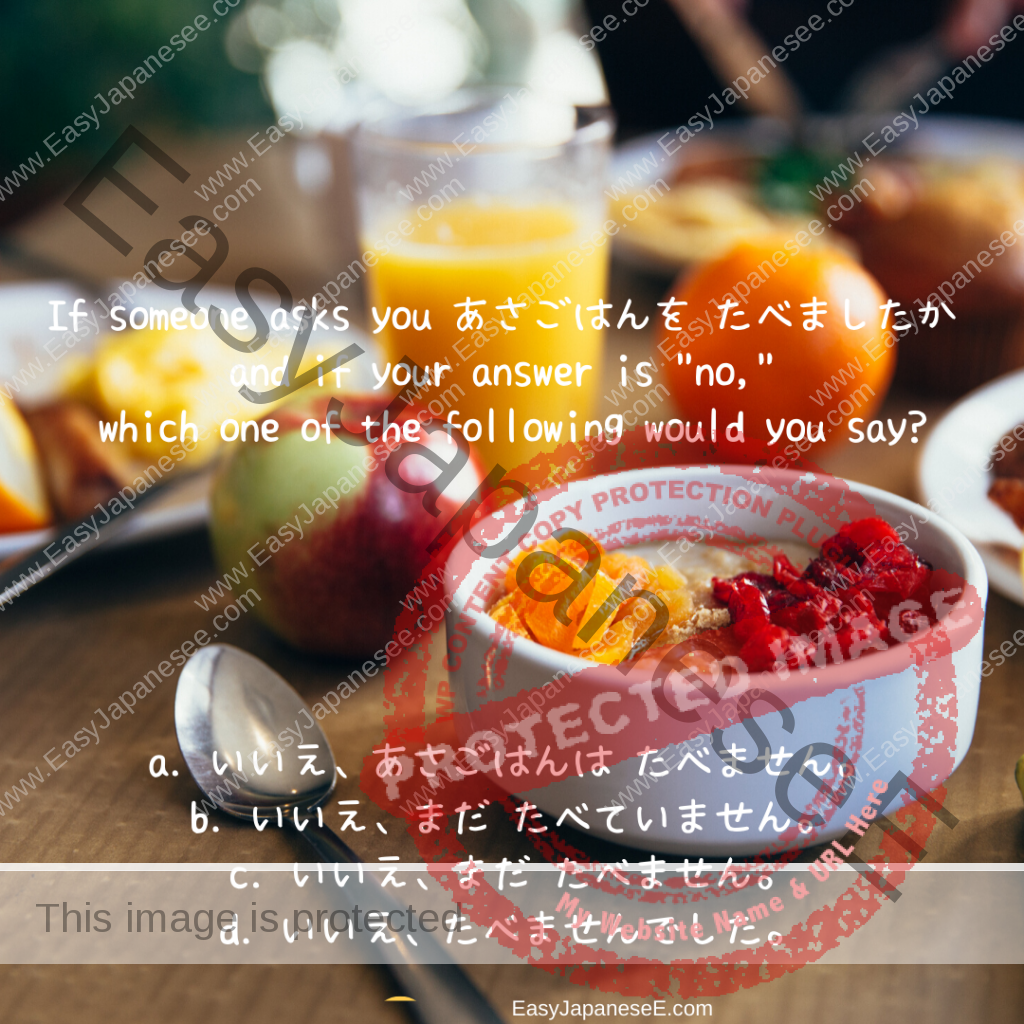
If someone asks you あさごはんを たべましたか and if your answer is “no,” which one of the following would you say?
a. いいえ、あさごはんは たべません。
b. いいえ、まだ たべていません。
c. いいえ、まだ たべません。
d. いいえ、たべませんでした。
This is a little tricky question, because all 4 answers would be appropriate depending on your lifestyle and what time the question is asked. Before I explain more, if your answer is “yes,” you can simply say: はい、たべました。
Now let’s see when it is appropriate to say each option for a “no” answer.
a. いいえ、あさごはんは たべません。means “No, I don’t eat breakfast.” Some people skip breakfast most of the time, so if you are one of these people, this is the correct answer for you.
The other 3 answers depends on when the question is asked, but before we talk about that, let’s check what “あさごはんを たべましたか。” means. As it ends in ましたか, many people think it means: “Did you eat breakfast?,” which is perfectly correct. However, in Japanese it is not easy to tell the past tense (“Did you eat breakfast?”) from the present perfect tense (“Have you eaten breakfast?”), which makes all other 3 answers possible.
b. いいえ、まだ たべていません。is the straight forward answer to the question “Have you eaten breakfast?” It means “No, I haven’t eaten it yet” and it implies that you are likely to eat it soon.
c. いいえ、まだ たべません。is the least likely and a bit unfriendly answer of all and it means “No, I don’t/won’t eat it yet.” This answer is possible when the question is asked very early in the morning, away before you would normally eat breakfast.
d. いいえ、たべませんでした。is the straight forward answer to the question “Did you eat breakfast?” If the question was asked well after lunch time, you can assume the intention of the question is to find out if you ate “breakfast” or not, so this answer is appropriate.
If you are the one to ask a question and if you want to make sure that you are asking a “Have you…?” question instead of a “Did you …?” question, you can add もう to the question.
もう、あさごはんをたべましたか。
Then the answer should be either:
はい、もう たべました。(= Yes, I have already eaten it.)
or
いいえ、まだ たべていません。(いいえ、まだ [てform] + いません)(= No, I haven’t eaten it yet.”)
Some more sentences with まだ~ていません pattern.
てがみは まだ とどいていません。The letter hasn’t arrived yet.
あの みせは まだ あいていません。That shop is not open yet.
この 本を まだ よんでいません。I haven’t read this book yet.
お父さんは まだ かえっていません。Dad hasn’t come home yet.
しゅくだいを まだ していません。I haven’t done my homework yet.
- まだ
- もう
もう
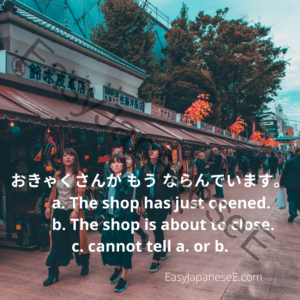
まだ
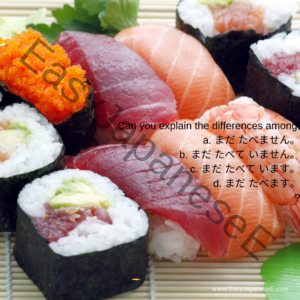
もう/まだ
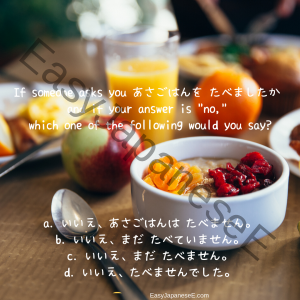
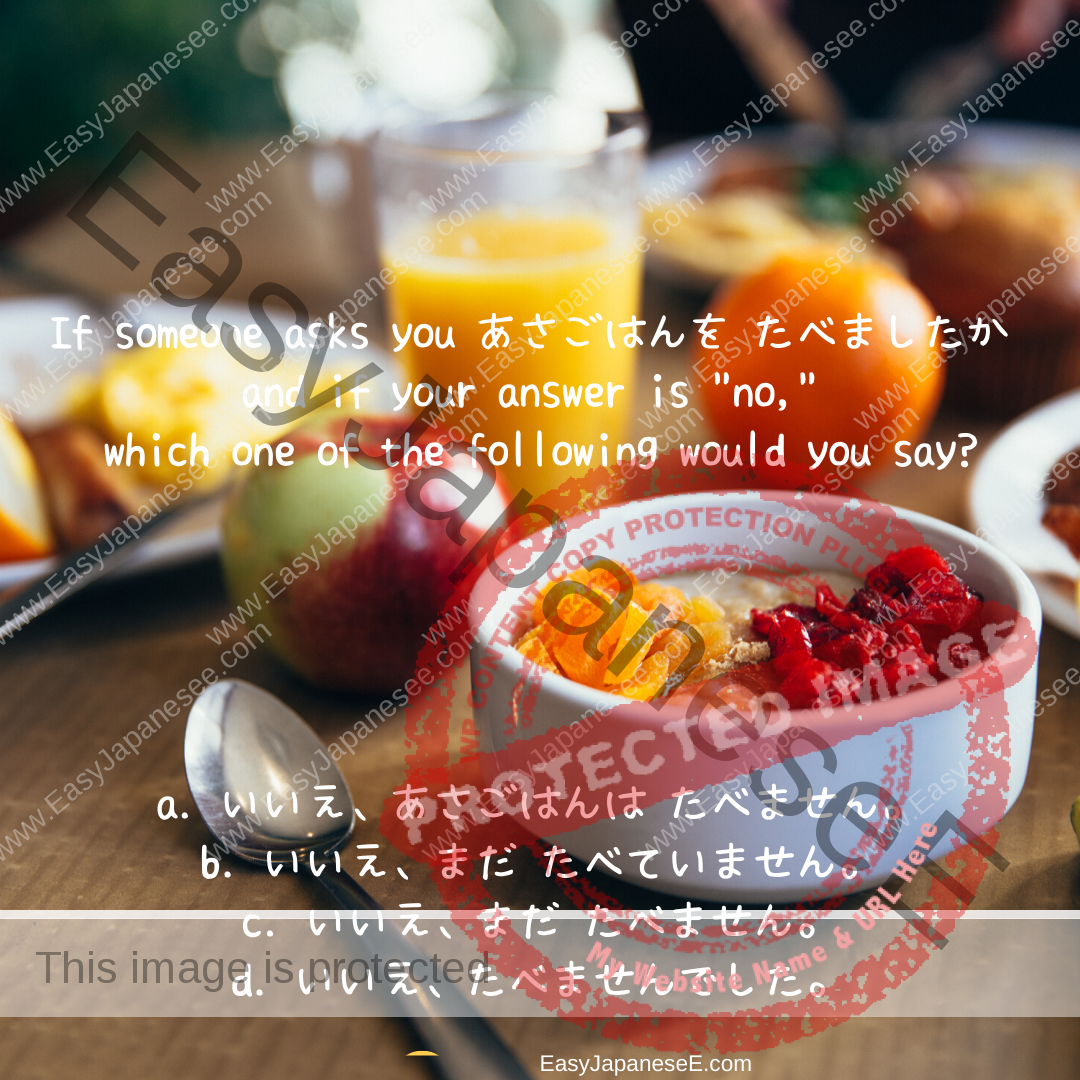

すごぃです
I like your grammar explanation, Regularly watch your all post it helps me a lot.
Coming July I am giving n4